Coronavirus: How has it hit the transport network in Scotland?
- Published
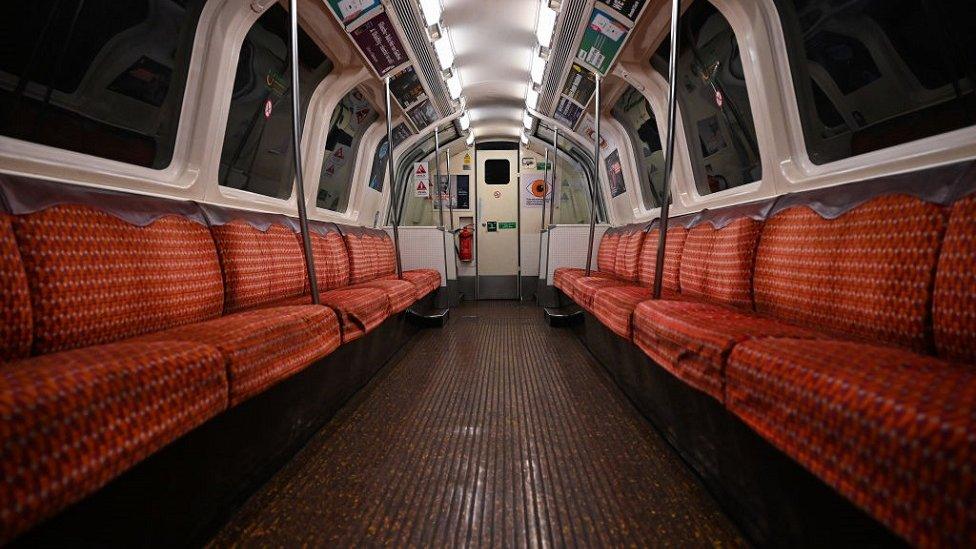
There are few people travelling on Glasgow's Subway during the coronavirus "lockdown".
Scotland's transport network has virtually ground to a halt since the coronavirus restrictions came into force.
The government has urged people to stay at home and to travel only when a journey is essential.
Here is an overview of how the transport links around the country have been affected.

Buses
Passenger numbers on public bus services have plummeted since the outbreak of the coronavirus.
Across Scotland operators' passenger numbers are about 70% down with a steeper decline among older people who use the concessionary travel card.
Perth-based Stagecoach and Aberdeen-based FirstGroup reported a "substantial" drop in passenger numbers, and all operators are running on a vastly reduced schedule.
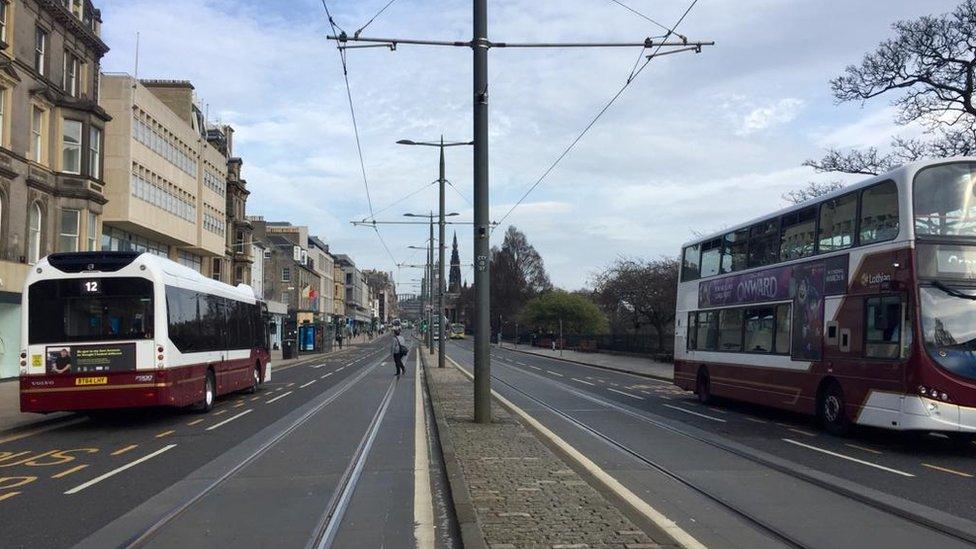
The buses are still running along Princes Street in Edinburgh
Paul White, Scotland director of the Confederation of Passenger Transport UK, which represents bus and coach operators, said it was "dire".
He added: "The situation has worsened since the greater movement restrictions came into force.
"Protecting services used by essential workers has been the priority but these are businesses now facing serious challenges."
In response the Scottish government has said it will pay bus operators what they would have been expecting in terms of concessionary travel payouts.
However, this is only about a third of the revenue bus companies get.
Coach operators which have local authority or tourism contracts have also been left in limbo as a result of the outbreak.
Trains
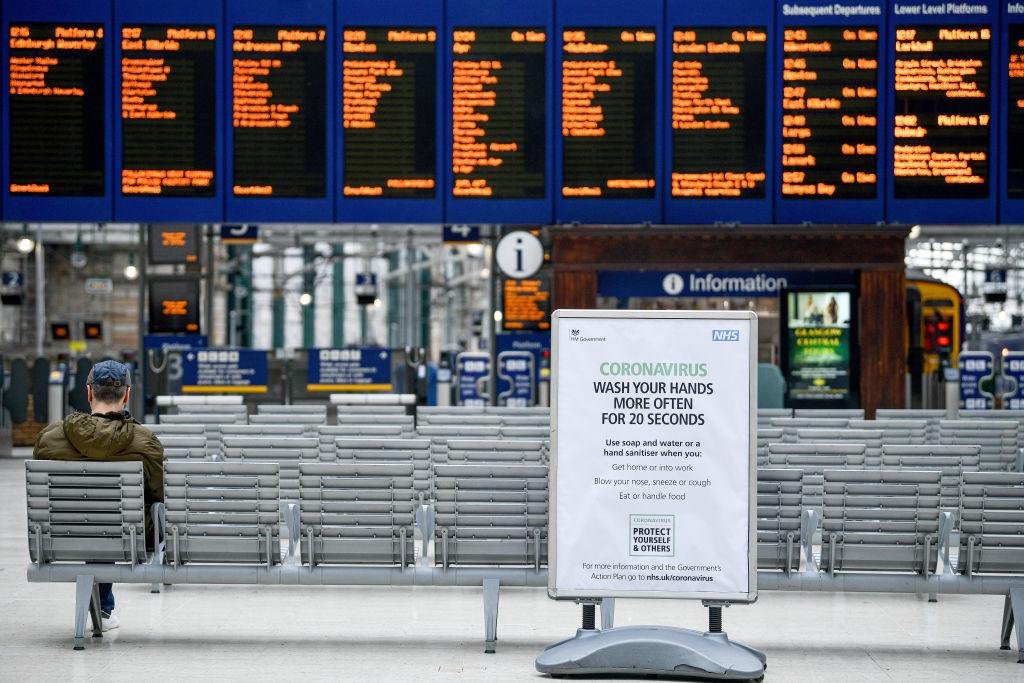
Glasgow Central station is very quiet
ScotRail is now running a reduced timetable as a result of an increased cleaning regime and staff shortages.
After reports on Monday of packed trains during the rush hour the reduced service is now less busy, says the firm.
Passenger numbers are about 75% down on what they were this time last year.
Rail stations are also quieter - patronage has decreased by about 97% compared to last year, according to Transport Scotland.
The rail franchise was effectively nationalised, on a temporary basis, earlier this week.
The Scottish government said ScotRail, along with the Caledonian Sleeper, would be "supported financially to be able to maintain necessary services for essential journeys".
Underground and trams
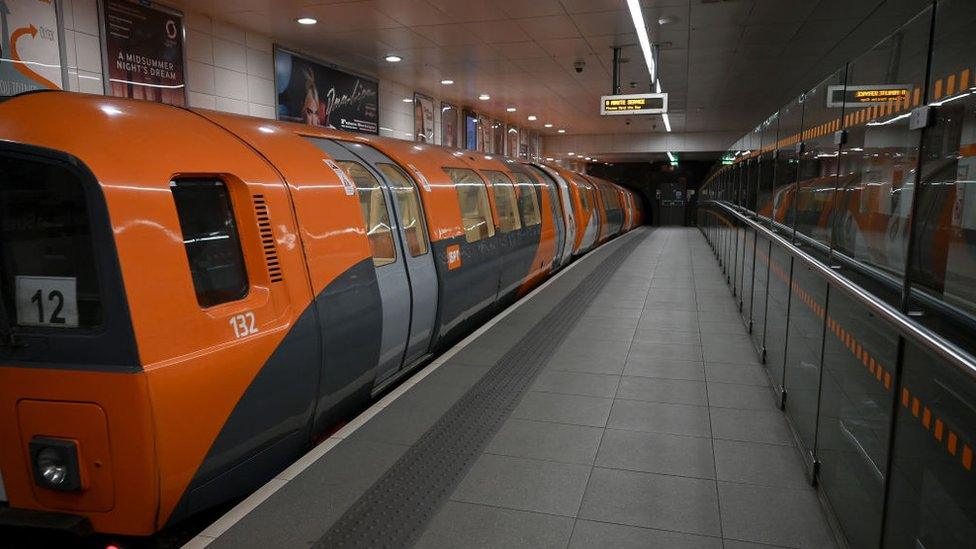
The Glasgow subway is reducing its hours
Glasgow's subway has reduced its operating hours as a result of the coronavirus outbreak. The subway will close each evening at 21:00.
The Edinburgh tram line, which relies on the city's airport for much of its traffic, is also operating a reduced service.
It has seen an 80% fall in customers compared to the same time last year.
Construction on an extension of Edinburgh's tram line from the city centre to Newhaven has been suspended.
Airports
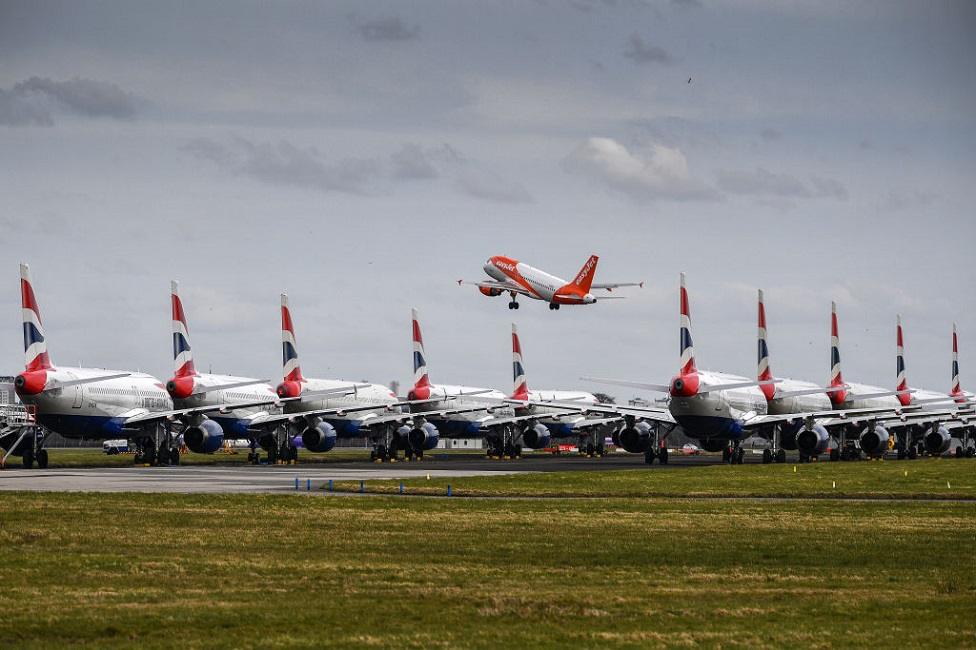
A large number of British Airways planes are grounded on the runway at Glasgow Airport
The worldwide collapse in international air travel means Scotland's airports are practically deserted.
Edinburgh Airport is planning for "close to zero" passenger demand in the coming months and hundreds of jobs are at risk across the country.
Most airlines are operating a very limited service.
For example, Ryanair, which usually operates dozens of routes in and out of Scotland, has halted them all apart from services from Edinburgh and Glasgow to Dublin.
Ferries
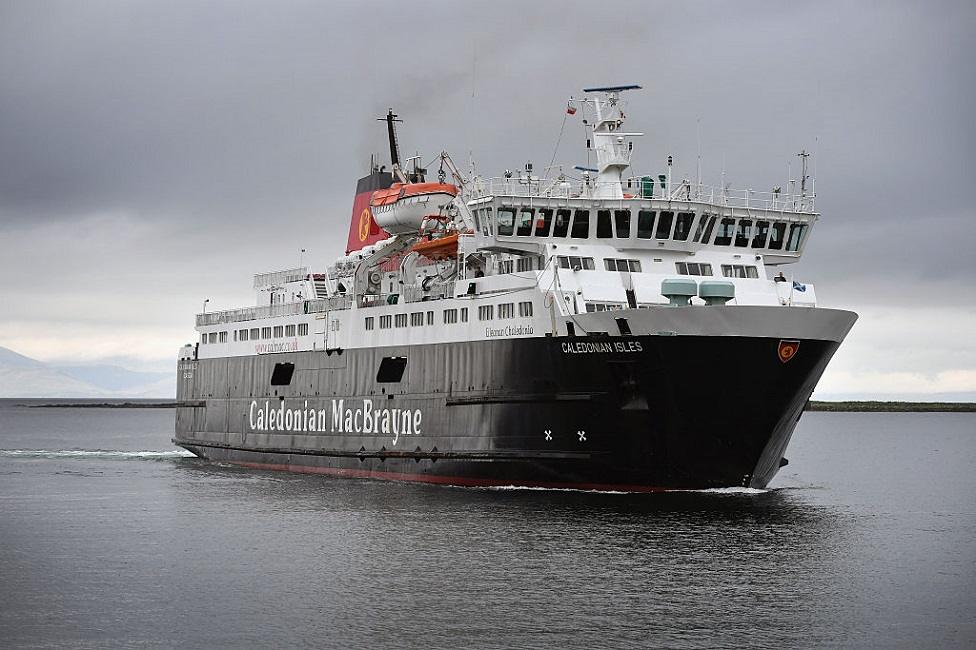
Access to CalMac ferries has been restricted to those who live and work on Scotland's' islands only.
Key workers or those who are going to provide medical support to family members are also allowed to use the services.
However, CalMac is asking people for evidence they live on the islands or are a key worker before letting them buy a ticket.
On board the ferries, social distancing measures are in place and all the cafes and bars are shut.
Roads
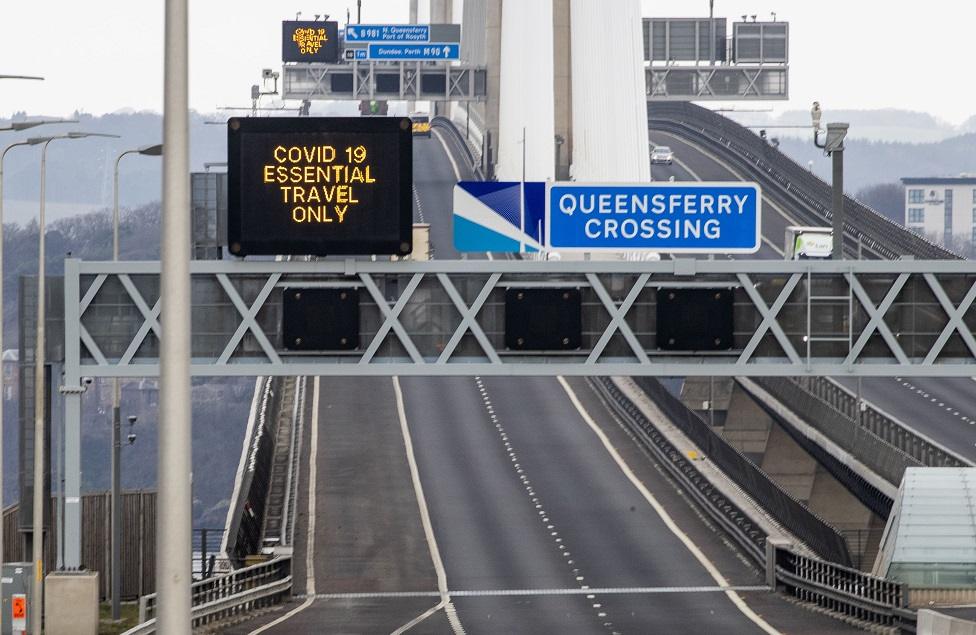
The roads are noticeably quieter as more people work from home
Transport Scotland has reported a significant drop in peak congestion levels in Aberdeen, Dundee, Edinburgh and Glasgow compared to last week.
And on some of the country's strategic roads, traffic reduced by 25% between Monday and Tuesday as more people started working from home.
Victoria Lumsden, of BBC Radio Scotland's travel bulletin team, said it has been like a Bank Holiday Monday on the roads.
"You get odd pockets of traffic here and there but nothing like the usual volumes or hot spots we see," she said.
A number of councils and trunk road operators have also been cancelling scheduled road works as a result of the coronavirus outbreak.

A SIMPLE GUIDE: What are the symptoms?
AVOIDING CONTACT: Should I self-isolate?
LOOK-UP TOOL: Check cases in your area
MAPS AND CHARTS: Visual guide to the outbreak
